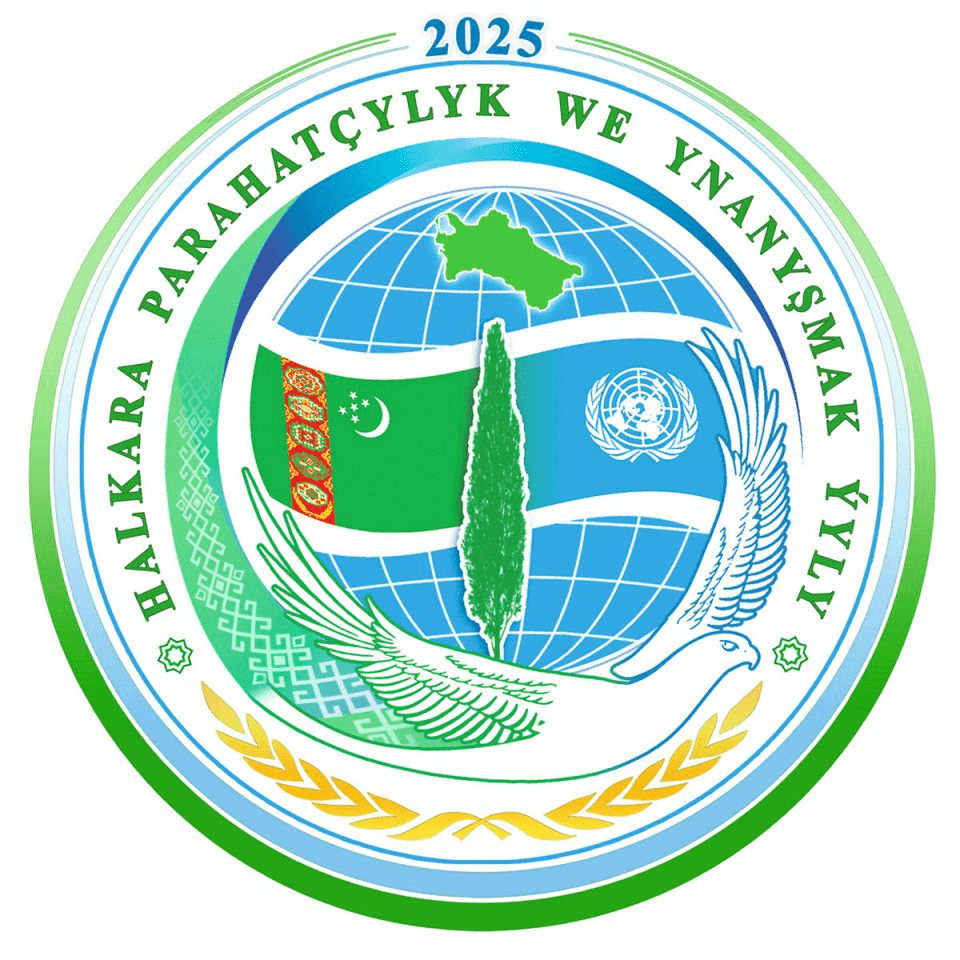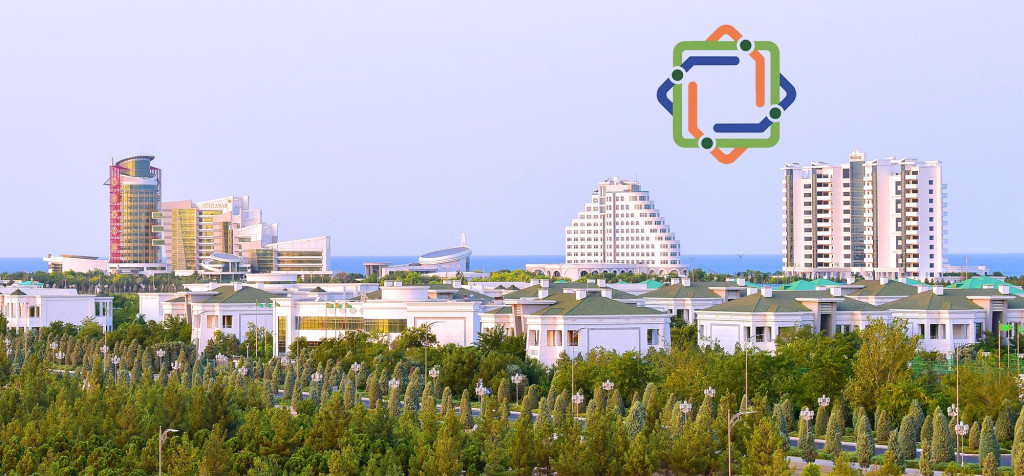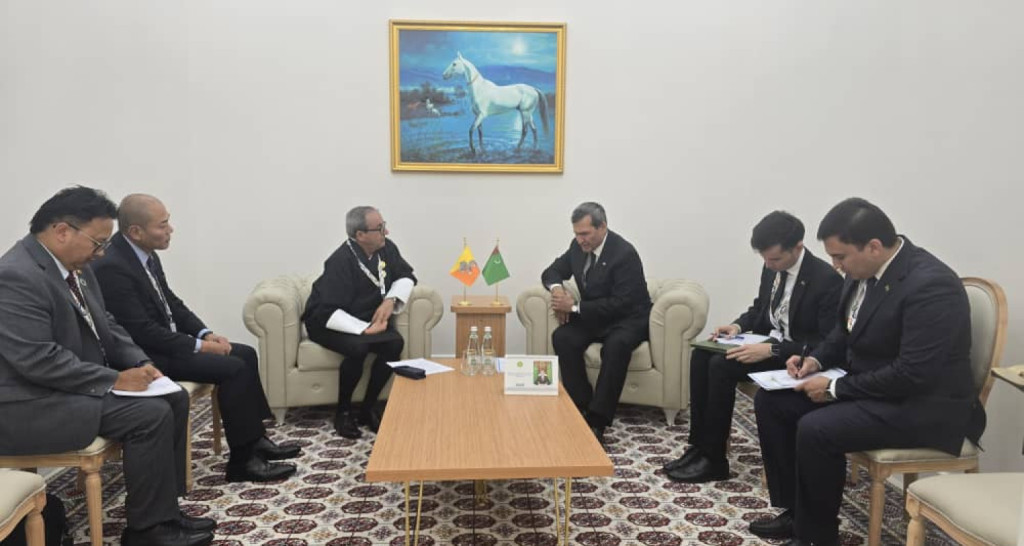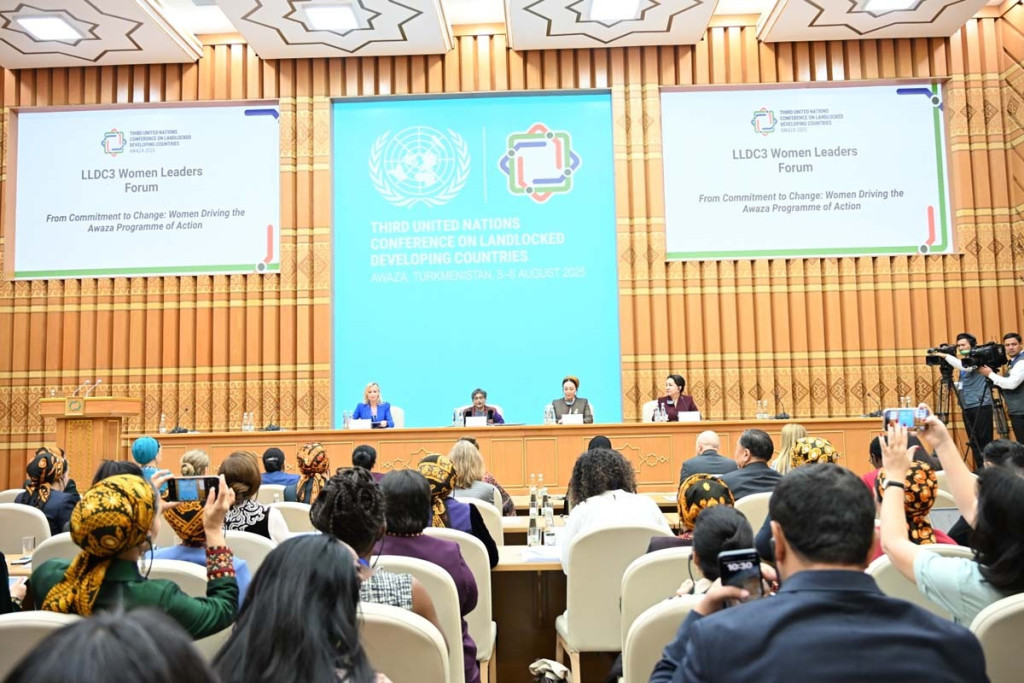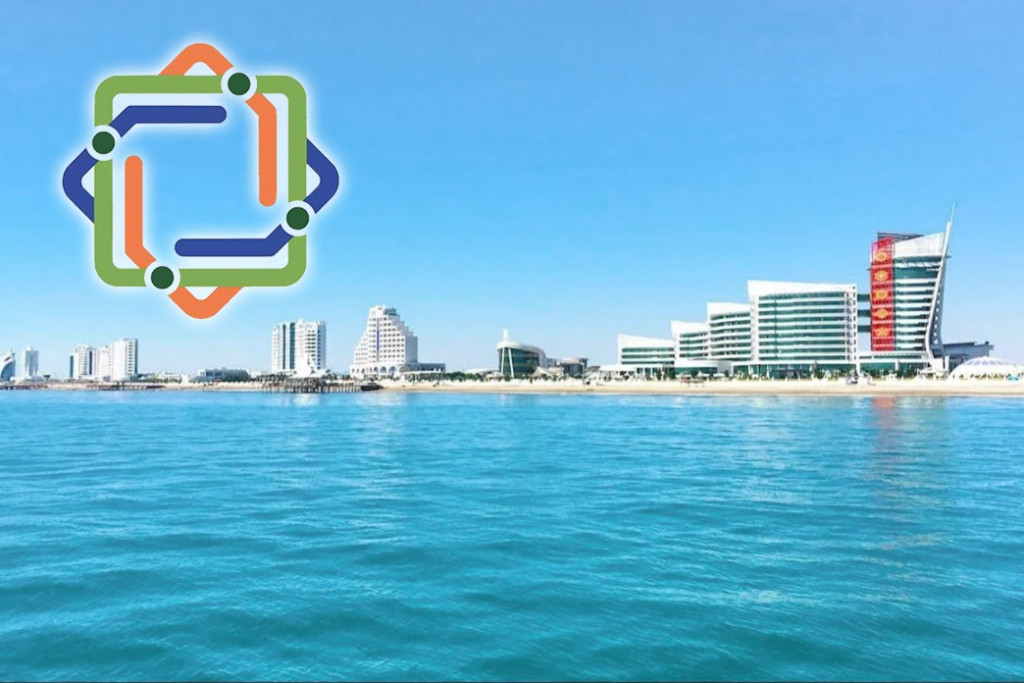
The Third UN Conference on Landlocked Developing Countries included a number of side events organized by UN agencies and other international organizations. The agenda included issues of sustainable economic development of LLDCs.
One of the main events was the event dedicated to the promotion of reforms in landlocked developing countries through technology and innovation. In particular, the importance of introducing advanced technologies into transport and logistics infrastructure, using the capabilities of "smart" transport systems that help reduce trade and transport costs by simplifying and accelerating cargo turnover was noted. Reports were also heard on the use of environmentally friendly technologies and renewable energy sources, and the development of "green" logistics solutions.
The role of the digital economy in achieving sustainable development with a long-term perspective should be especially emphasized. The development of digital services, e-commerce, IT and remote management systems contributes to the creation of new sources of income and jobs regardless of the physical supply of goods. The introduction of modern technologies in agriculture, the education system and government structures contributes to an increase in the standard of living of the population and the effectiveness of economic growth.
At the event “Implementing the Right to Development in the Context of the Implementation of the Avaza Programme of Action for Landlocked Developing Countries”, organized by the Office of the UN High Commissioner for Human Rights, a discussion of the tasks set in this area took place.
The right to development is an internationally recognized right, proclaimed in the relevant United Nations Declaration. It means that every person and all peoples have the right to participate in, contribute to and benefit from economic, social, cultural and political development. Development should be people-centered and encompass all aspects of life, and its benefits should be shared by all.
The Avaza Action Programme addresses areas related to digital technologies, measures to ensure universal access to the Internet and digital services. As noted, digital technologies open up new opportunities for LLDCs regardless of their geographical location. The development of e-commerce, IT services and digital infrastructure makes landlocked developing countries more attractive for foreign direct investment.
The event, entitled “Strengthening Food Security in Landlocked Developing Countries in Africa: Fostering Private Finance, Expanding Trade and Regional Integration for Sustainable Food Systems,” addressed issues related to this pressing issue, as well as challenges to building the economic potential of the entire continent.
Strengthening food security in landlocked developing countries in Africa is of great importance for improving the living standards of people and, consequently, achieving the UN Sustainable Development Goals. In this context, a comprehensive approach to creating sustainable food systems is needed. In this regard, a number of proposals have been put forward for comprehensive support of agricultural producers and the involvement of international financial institutions in this activity.
A side event hosted by the United Nations Industrial Development Organization (UNIDO) discussed scaling up innovative solutions to attract investment to the agricultural sector in LLDCs.
As noted, landlocked developing countries face challenges in attracting capital investment in this important sector due to barriers such as high transportation costs, limited market access, climate change and infrastructure capacity. To overcome these barriers, it is necessary to increase financial resources for this sector and stimulate innovative solutions.
In this context, the exemplary experience of Turkmenistan in the development of agriculture was emphasized. It was noted that the agricultural sector of our country is consistently developing, its export potential is strengthening. At the same time, special attention is paid to the use of modern technologies and the latest scientific achievements. The introduction of the concept of "green" economy in this sector, which is an important requirement of the time, contributes to ensuring sustainable development and environmental well-being. In this regard, specialized research institutions of Turkmenistan are carrying out the necessary work to create new high-yielding varieties adapted to local soil and climatic conditions, drought-resistant and intended for introduction into production. This is also of great importance for maintaining ecological balance and adaptation to changing conditions.
On the same day, a session entitled “Investment and Innovation in Landlocked Developing Countries through Scaling Up Solar Energy for Sustainable Development” was held.
Most of the participants' reports were devoted to the opportunities of renewable energy, energy transition and green technologies for LLDCs. Investments and innovations in these areas will help stimulate economic growth in these countries.
The advantages of using solar energy include reduced dependence on expensive imported fuel, as well as decentralized energy production. This will provide electricity to villages and remote settlements not connected to the central power grid. Solar energy is a clean source of energy, its use helps reduce greenhouse gas emissions. In this regard, an analysis was given of the prospects for creating energy supply systems based on solar energy.
Participants in the meeting, which discussed opportunities for landlocked developing countries arising from the Convention on Biological Diversity, focused on addressing challenges arising from international law to ensure environmental sustainability.
As noted, this Convention, adopted in Rio de Janeiro in 1992, is an international document aimed at achieving the goals of preserving biodiversity, rationally using its components, and ensuring fair and equitable distribution of benefits associated with the use of genetic resources.
As is known, the agricultural sector plays an important role in the economy of landlocked developing countries. In this regard, the Convention pays great attention to the development of sustainable agriculture that preserves biodiversity, increases local varieties of agricultural crops, as well as the development of forestry and other issues related to improving food security and sustainable incomes of farmers.
In this regard, it should be noted that Turkmenistan, having joined this important Convention, is steadily fulfilling its obligations. The main goal of the state environmental policy of the Fatherland is the rational use of natural resources, enrichment of flora and fauna, and preservation of the unique nature of the country.
The side event on “Application of UN legal instruments in the field of transport and trade facilitation for landlocked developing countries”, organized by the United Nations Economic Commission for Europe (ECE), became one of the main platforms for exchanging views on the importance of legal instruments developed under the auspices of the UN.
As is known, LLDCs face certain obstacles due to the lack of direct access to the sea and high transport and logistics costs. The United Nations plays a key role in ensuring the sustainable development of these countries, having proposed a number of legal documents aimed at solving these problems. Among them are the UN Convention on the Law of the Sea and the Convention on Transit Trade of Landlocked States, which guarantee the right of access to the sea and transit.
Particular attention was paid to the activities of the UNECE and the UN Commission on International Trade Law (UNCITRAL). This Commission develops relevant documents aimed at implementing and modernizing international trade law, directly related to the simplification of trade operations of LLDCs. These include such legal instruments as the United Nations Convention on Contracts for the International Carriage of Goods Wholly or Partly by Sea (the Rotterdam Rules).
The Almaty Programme of Action, the Vienna Programme of Action and the Avaza Programme of Action 2024-2034, developed by the UN General Assembly for landlocked developing countries, also provide a policy and legal framework for facilitating transport and trade in these countries.
The event, “Institutional Frameworks and Digital Public Infrastructure for E-Commerce in Landlocked Developing Countries,” also discussed how to address trade-related challenges.
The development of e-commerce is one of the key areas of economic diversification and overcoming geographical barriers in the LLDCs. The sustainability of this system requires coordinated activities of institutional structures based on an effective digital state infrastructure. Institutional structures of the e-commerce system are understood as a set of rules, regulations, organizations and mechanisms that regulate and support the functioning of Internet commerce. They ensure the reliability, security and efficiency of electronic transactions.
Digital government infrastructure is information and communication technologies that provide government services to citizens, enterprises and government agencies. The widespread use of these technologies facilitates the implementation of operations in various areas, integrates information into a single system, helps save time and money, and increases business and investment activity.
As is known, large-scale work is underway in our country to introduce the digital economy and fully utilize the "Electronic Government" system. In this regard, it is worth noting the creation of a single portal of state services of Turkmenistan e.gov.tm. It is an automated information system of the "Single Window" for providing citizens and entrepreneurs with electronic access to government services.
A side event on Financing Sustainable Development in LLDCs through Integrated National Financing Frameworks, organized by the United Nations Development Programme (UNDP), focused on cooperation and coordinated action in the financial sector
Speakers emphasized the importance of ensuring sustainable financial development. The role of coordinated national fiscal systems in achieving the SDGs was also noted. Effective national policies in this area can help create a more attractive environment for investors. In addition, recommendations were presented for the development of national development plans and financing strategies directly related to the SDGs. Discussions were also held on the analysis of existing sources of financing, assessment of their effectiveness and sustainability, identification of key investment areas and mechanisms.
The side event “Transport Corridors for Economic Development and Trade Facilitation” was organized by the World Trade Organization (WTO).
As noted during the meeting, the necessary infrastructure that ensures the transportation of passengers and goods between different countries and regions, in particular ports, terminals and logistics centers, is an integral factor in economic development.
The main goal of forming transport corridors is to optimize logistics, eliminate geographical and other obstacles that arise during cargo transportation, simplify customs procedures, save time and money, and establish harmonious movement of various types of transport. This opens up new opportunities for export and import, expanding access to markets and resources.
Joint projects in this area necessitate cooperation aimed at strengthening political and economic relations and creating free trade zones. In this regard, the importance of forming new multimodal transport corridors in order to realize the potential of the LLDCs in this area and actively involving coastal countries in this work was emphasized. An exchange of experience in the implementation of modern logistics technologies, such as digitalization of document flow and cargo tracking systems, also took place.
A side event on sustainable connectivity for landlocked developing countries discussed the topic in light of the challenges these countries face in their economic development and integration into the international trading system.
Sustainable connectivity aims to create reliable, efficient and cost-effective systems connecting LLDCs with regional and global markets, providing access to information and technology. In this context, such tasks as developing combined transport corridors and infrastructure, improving the activities of logistics centers and dry ports, establishing permanent transit cooperation with neighboring countries, simplifying customs procedures, introducing digital technologies, and training highly qualified specialists are relevant.
Particular attention was paid to the development and implementation of contracts guaranteeing the right of free transit of such goods and determining fair tariffs and conditions. In this regard, the possibilities of interaction with specialized UN agencies and other international organizations were considered.
The event, entitled “Connecting Landlocked Developing Countries to Global Trade Routes: Enhancing Cooperation between LLDCs and Coastal States”, also included transport partnerships.
As noted, strengthening cooperation between LLDCs and coastal states is crucial for the successful integration of countries into global trade routes. Such partnership, based on the principles of mutual benefit and trust, can significantly reduce barriers associated with transit transportation. At the same time, opinions were expressed on concluding new agreements and systematically adopting existing ones in this area, creating joint border crossings and border trade zones, and acting in accordance with international law obligations. Such topics as the development of joint transport infrastructure, investment cooperation, establishment of institutional ties, creation of joint working groups, exchange of information and best practices were also the subject of keen discussion.
Overall, the parallel events featured broad constructive discussions on the possibilities of promoting global development through sustainable economic growth in LLDCs. Noting the high organizational level of the meetings, the participants expressed their sincere gratitude to their Turkmen partners for creating excellent conditions for successful work and fruitful cooperation.
